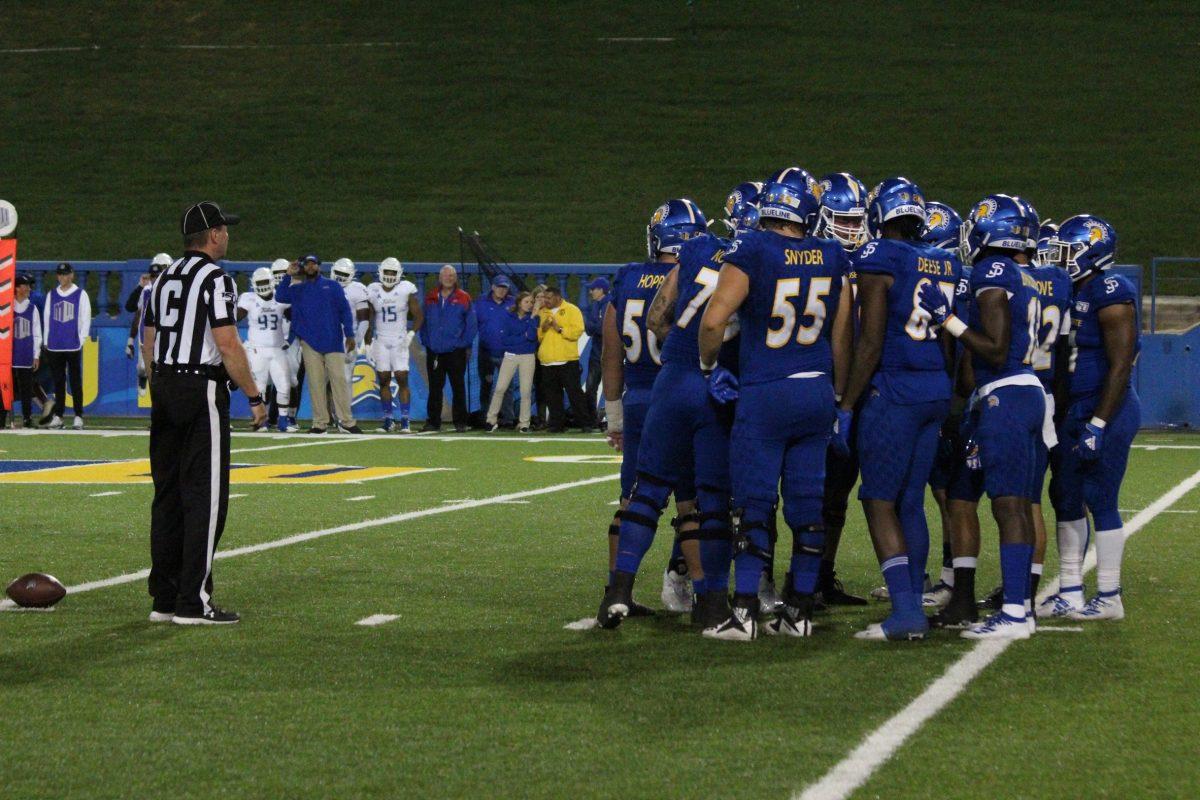
Photo courtesy of Ernie Gonzalez
After seeing a rise in COVID-19 cases these past few months, the Mountain West Conference and the Western Athletics Conference postponed fall sports indefinitely on August 10.
The postponement has affected four San Jose State sports including: men’s and women’s cross country, football, men’s and women’s soccer and women’s volleyball. There are still ongoing discussions regarding winter sports.
Despite the season being indefinitely postponed, the athletics department remains optimistic about the possibility of rescheduling Mountain West games for spring 2021. However, there is no guarantee that they will have a spring season.
“In these unprecedented times stemming from the COVID-19 pandemic, we’ve had to pivot, adapt and respond to a changing landscape that impacts all of us,” Athletics Director Marie Tuite said in a August 10 SJSU Athletics’ article. “For the sports that have been postponed, we will continue to plan for a number of future scenarios, and look forward to additional guidance from our governor, county officials and the NCAA.”
For men’s soccer, their season is being pushed till January 2021, but because of uncertainty due to the pandemic, athletes like senior midfielder Max Allen are finding it hard to cope with the fact that it could all be taken away.
“One lesson [I’ve learned] would be, how much I love the sport I play. I miss competing everyday, playing, training and wanting to win,” Allen said. “It gives you a purpose and with it being gone, at times I have felt lost because I miss competing so much.”
But Allen is not alone in his disappointment.
“I think first and foremost I was disappointed for everyone involved, you know, our players, our coaches, our fans and students. Just not having a college football season is disappointing for so many people,” Football head coach Brent Brennan said over the phone. “And knowing how hard our team has worked to continue to improve over the last three and a half years and not getting a chance to demonstrate it is devastating.”
However, Brennan believes this pandemic has been an opportunity for the team to improve their physical health, skills and academics.
“There’s been a lot of good stuff that’s happened during this time. We’ve had our highest team GPA in the history of San Jose State football this spring,” Brennan said. “We had over 70 players above a 3.0. I think some of the lessons that we have learned have been really positive but they are also ongoing because we aren’t out of the woods yet.”
Women’s soccer senior defender Karlee Pottorff is also taking this postponement as an opportunity to move forward.
“Quarantine is really just time to grow and just reflect on that we are more than just athletes and even though we have the option to come back to campus or stay home, either choice takes a lot of discipline and discernment,” Pottorff said over the phone. “It really takes a lot to separate ourselves from sports which we kind of have done for most of our lives and really figure out as people, primary to the sport that we have been so dedicated to.”
Pottorff and her teammates encouraged other Mountain West women’s soccer teams to push for postponement for the sake of safety for themselves and their community. The team met with 10 out of the 12 teams in the conference on August 8 and noticed a problem if they were to play in fall.
“We all realized that we are all on the different pages in the pandemic and we are all on different pages in terms of competition, where Boise State is training without masks on and you have California schools who haven’t even stepped on the field yet as a team,” Pottorff said over the phone. “In light of preserving the sport as true competition, we realized that even if we did return to the fall for the season it would not be competitive and driven by a passion that we all have for the sport.”
When asked about what she would do if it came to playing in January, Pottorff insisted it will take a lot for every team to actually compete.
“When we talked to all the Mountain West schools we realized that a big factor of returning in January is that 4 of the 12 teams are snowed out until April,” Potorff said. “It’s a huge adjustment travel-wise and all those things that you don’t think of when you’re in California. You have to try to empathize with other schools like, ‘Wow, even January can be a tough circumstance to deal with.’ ”
There will be a lot of changes to accommodate for the pandemic this fall and whether teams continue to train or push for postponement, one aspect will stay the same. The ability to adapt.
“This is one of those situations where we can’t hold on tight to a season that we don’t know what it’s going to look like,” Pottorff said. “It kind of is going through this theme of taking our hands off the wheel and whatever comes at us is gonna be kind of adjusted to and adapted to and having faith through it all.”